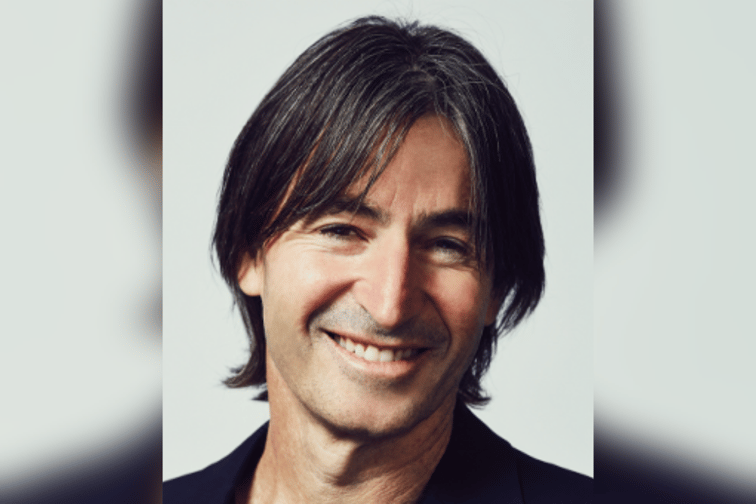

Next Insurance recently appointed an executive with substantial IPO experience as its new chief financial officer, raising questions about whether the small business digital insurer will be heading soon to the public markets.
Next touts the new hire – Teodora Gouneva – as having supported successful IPOs at PayPal and Airbnb during stints at both places. Gouneva has more than 20 years of experience in finance both among start-ups and investment banks.
Guy Goldstein (pictured), the company’s CEO and co-founder, remains coy about when Next Insurance will embrace an initial public offering.
“We are focusing right now mostly on operations,” Goldstein said. “We will IPO at some point.”
There are other clues that could suggest an IPO is happening soon. Next, a Palo Alto, Calif.-based company, has raised $881 million in multiple rounds since its 2016 founding, and now employs nearly 1,000 employees in multiple US locations and in Tel Aviv, Israel. Fellow digital insurers including Lemonade and Root hit the public markets with far less corporate scale and venture money raised.
At the same time, the IPO market is slowing due to diminished returns and stock market volatility, Bloomberg reported in December. There’s also been a pause in reverse mergers, or special purpose acquisition company transactions, where a public shell company acquires a start-up, allowing it to access the public markets in an alternative way. Next has plenty to gain for now by remaining private, Goldstein said.
“There’s still a massive opportunity for Next to continue to grow and execute. We’re still growing extremely fast,” Goldstein said. “We have enough capital to run as a private company. This is where [we’re] posting all our energy.”
Goldstein declined to comment on Lemonade and Root’s respective decisions to launch their IPOs earlier in their respective developments. He insisted, however, that start-ups must consider basic fundamentals before pulling the public market trigger.
“It’s important to grow and to show that you actually have a market and you can acquire customers,” Goldstein said. He asserted that Next is reaching appropriate scale, using tools such as artificial intelligence and machine learning in its digital systems.
“This is a way to work in scale and it takes time,” Goldstein said.
There’s also less pressure to hit the public markets in the current environment, he added.
“I don’t think today there’s an urgency to go public,” Goldstein said. “As long as you’re well capitalized, investors are not in a hurry to get returns [so] companies stay private longer.”
Initially launched as an MGA, Next shifted gears after a few years toward becoming a full stack carrier. Goldstein said the company has an ambitious goal – to become the largest insurance carrier for small business in the United States.
In terms of scaling, Next notes it reached a $650 million gross written premium run rate in 2021, triple the previous year. It claims to now have a customer base of more than 300,000 small businesses, and a valuation of $4 billion after a recent $250 million venture capital raise.
Next now operates in all 50 states either as a carrier or as an MGA, as its regulatory transition to full carrier continues. Its nearly 1,000 employees are spread between Austin, Texas, Tel Aviv, Palo Alto, Waltham, Mass., and Rochester, N.Y. Hiring continues in areas including data science, engineering and marketing.
Gouneva, the company’s latest high-profile hire, will focus on driving Next’s financial operations, and scaling its performance/management functions to help it reach sustainable growth. Her predecessor, Michelle Cheung, will serve as the company’s first chief corporate officer with a focus on leading Next’s legal, people and operations functions.
Next initially was all digital, focusing on selling coverage in an online process that takes 10 minutes or less and provides access to live certificates of insurance. The company claims that its AI and machine learning helps simplify the purchase process, leading to costs that are up to 30% cheaper compared to traditional policies.
Next works with direct channels or embedded channels. It partners with Intuit QuickBooks, for example, to enable QuickBooks users to obtain a customized quote and purchase general liability, professional liability and workers’ compensation directly from their QuickBooks account. It also has linked up with Amazon, to help sellers on the platform obtain general liability cover. As Next has morphed into a full carrier, however, it also began to embrace the use of more traditional insurance agents. Next acquired AP Intego in 2021, a digital insurance agency focused on the small business insurance space.
Goldstein insists that many business clients question why agents are still needed, but he has embraced the idea that a sizable part of the market remains amenable to agents.
“There are a lot of businesses who want to use an agent to buy [coverage] and are doing it today, so it is important for us to be there,” Goldstein said. “Otherwise they cannot get [coverage] and we want [it] to get to every small business.”
Goldstein continues to expect the market to become primarily digital, but, he said, the process could take far longer than initially predicted.
“The market is shifting to more direct and less agents, but this transition could take 20 years, and maybe, you know, some customers would always want to use an agent,” Goldstein said. “We will be both.”
